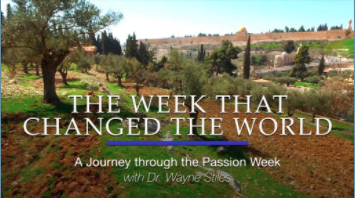
A Christian Conservative Goes to College, part 1 (Introduction)
In the last year I have talked to several friends, Christian parents, who were concerned about the “education” their children are receiving in college.
After all, conscientious Christian parents work all those years to raise their child in the discipline and instruction of the Lord (Ephesians 6:4, Deuteronomy 11:19, etc.), then send those children off to a secular college or university where that instruction will most likely be attacked on every level. When this happens, the child may begin questioning everything about Christianity and everything the Bible teaches. They may begin retreating from parents, Christian friends, church, and Christianity while the parents become sick with worry and wonder how in the world this could have happened.
I hope that my story will bring some lessons and truths home for every reader.
In the last year I have talked to several friends, Christian parents, who were concerned about the “education” their children are receiving in college.
After all, conscientious Christian parents work all those years to raise their child in the discipline and instruction of the Lord (Ephesians 6:4, Deuteronomy 11:19, etc.), then send those children off to a secular college or university where that instruction will most likely be attacked on every level. When this happens, the child may begin questioning everything about Christianity and everything the Bible teaches. They may begin retreating from parents, Christian friends, church, and Christianity while the parents become sick with worry and wonder how in the world this could have happened.
I hope that my story will bring some lessons and truths home for every reader.
So let me lay the foundational work: It had been twenty years since I graduated from high school. I was 38 years old when I took the plunge and finally decided to go to college. There were many reasons I did this: I wanted to learn new things. I wanted to stock up on English, Philosophy, and History classes, things that interested me and things that would probably help me as an aspiring writer. I also wanted to broaden my perspective; I wanted to be introduced to books and ideas I would not normally run across or give time to in my everyday pursuits or reading.
Now when I made the announcement that I would be returning to school, one Christian man, who was older than me, told me I should not go to a secular college, that I should only go to a Christian college. I knew what he meant by his counsel. I understood that radical secularism and Leftism permeates colleges and universities. I knew that the halls of academia can sometimes be hostile towards Christianity. But my response to him was that I was old enough to be secure in my beliefs. My own personal study had solidified my foundation. No one was going to sway me away from my trust in Christ or my belief that the Bible is God’s revelation to mankind. I was entering college with open eyes, knowing what I might face. And I entered prayerfully (Philippians 4:6).
I was returning to school to learn truth wherever I could find it. And since all truth is God’s truth, I asked God to grant me understanding and the knowledge of His truth (John 8:32, Ephesians 5:8-10). I also asked Him to reveal to me where I might be in error. After all, we all have traditions and “well that’s what I was always told” stuff still stuck in our belief systems. “So teach me, God,” was my prayer. No matter what, I believed the whole experience would, in the long run, only serve to strengthen and help me in my Christian walk (Romans 8:28).
Every Christian parent and prospective student should know what they are getting themselves into when they go on to “higher learning.” Christians need to understand that there are schools that are supposed to be “Christian,” and there are schools with words like “Theological” in their name, that may not be completely orthodox if orthodox at all. One must realize that we live in a world where there is a constant battle against the truth of God, against our Father in heaven and Jesus Christ His Son, and against the Bible and morality. We are at war. Colleges and universities are battlegrounds in this war. The ACLJ (check out the ADF as well.) has had many examples of Christian students being singled out for discrimination and persecution. Remember that Leftism, atheism (Why this illogical position seems more popular than agnosticism I’ll never know.), radical feminism, homosexual activism, and the quasi religions of Scientism and Environmentalism often reign on campus. (I often pray that God will make war against and destroy all the “isms” and philosophies that make war against Christ and Christians.)
Attacks on Christians at school will not only come in the form of professors spouting anti-Christian beliefs and teachings, but will also come from students who have grown up in a post Christian America. The worldviews and morals of college certainly are not biblical. This will be reflected in the kinds of books and essays that will be assigned in English classes. It will be reflected in the opinions and ideas taught in History, Sociology, Psychology, Political Science, and Science Classes. Biblical religion and Christianity may very well be relegated to “the dark ages” and the world of “the unenlightened” and “unscientific.” It might be frowned upon and sneered at. Will Christian students be ostracized by their peers and belittled by professors? It’s possible. Will their viewpoint be discarded by those who say that every viewpoint is valid? (Be on the lookout for the contradictions.) Will the Christian culture be rejected by the multiculturalists? Will the fundamental Western religion be ignored or disrespected in Religious Studies?
And will Christian students be able to share their beliefs or be allowed proper opportunity to defend Christianity when it is attacked?
I often took a stand for Christianity, or at least I would attempt to point out the flaws in the logic used by teachers and students when attacking traditional morality or biblical Christianity. I always did it, however, respectfully. (Always with an eye on maintaining my 4.0—does that make me a sell out?!) Now if I had a teacher who was a wise guy or a comedian, one who interacted with students on that level, I might change my methods to suit the moment. I might engage him in his own arena… As I engaged others at school, one of the verses that often came to mind was the one where Jesus told his disciples to “be wise as serpents and innocent as doves” (Matthew 10:16). Others might be reminded of Paul’s words: “I have become all things to all people, so that by all means I may save some” (1 Corinthians 9:22).
My goal was never to belittle or embarrass anyone. My goal was to arrive at truth or, at least, provide a Christian viewpoint/counterpoint in class. I did not want any lies or attacks to remain standing alone as seemingly irrefutable arguments by “wise” older professors. I would often look around the classroom at all the other students hoping and praying that what I’d said or done might be the planting of a seed of truth (Luke 8:11-15).
Of course, in some cases there was not ample time to respond in class. Other times I would not have the proper response on the tip of my tongue. Because of these things, I used multiple methods to bring out the counter arguments: During classes I would often present an opposing viewpoint in the form of a question. “Professor, isn’t there an opposing viewpoint that says…?” “Professor, wouldn’t some argue that your position on that was self-refuting logically?” I also often stayed after class to have discussions with professors. Usually students who are really into the subject matter or students who really like the teacher will stay after class for more discussion. I sometimes tried to make the most of those opportunities.
Let me say that most of the time I liked my professors, even if they drove me crazy in class. I would pray for them (Matt 5:44b). And by talking to them after class, by joking with them on occasion, and by giving them the respect of their position and respect for good points they made, I often felt as though they gave me a fair hearing. I was glad because I wanted them to come to a saving knowledge of Jesus Christ, too! Who knows how many people actually witness to their teachers? (I’m not saying I did a lot of witnessing, but, by God’s grace, I did a lot of testifying to the truth.)
Whenever possible I would also choose assignments that would reflect biblical truths. Sometimes I would write an extra report or I would photocopy some works by Christian writers who had already countered things the professor had said. Many times I would take these materials, things I’d written or photocopied, and would distribute them to other students, but only with those who seemed interested or those who had engaged in the debate itself. In many classes I would buy alternative books for anyone who might want one (and you’ll often find that people want free stuff). In some classes I’d buy five or ten copies of a book (C.S. Lewis’ “Mere Christianity” for example) and give them away.
At the end of the semester I would gift the professor something, usually a book on topics we’d debated or discussed. I would wrap it up in brown paper and tell them, “Don’t open this until you’ve put in my final grade… I don’t want it to affect my grade in either direction.” Yes, I used many different methods to bring the truth to the forefront, and to love those with whom I shared classrooms. I knew it was no accident that we shared that time together. Each class was my assigned mission field from God (1 Corinthians 10:31, Colossians 3:17).
What did it all accomplish? (This should give many of you Christian parents some hope.)
First, it strengthened my own beliefs in many areas because it forced me to read more and study God’s Word more. Interacting and debating with those who have different viewpoints than us, especially those who disagree with us, exercises our faith or forces us to deal with hard questions about our beliefs.
Secondly, it helped me realize where my Christian beliefs and arguments fell short. I had to learn to admit that the Bible does not hold the answer to every single question. At such times we do our best to find overall biblical governing principles. But sometimes we simply have to say, “I don’t know.”
Third, I’d returned to school to learn, but I found opportunities to teach and witness and testify. It is very possible that some heard an orthodox Christian perspective for the very first time in their lives. By the grace of God many people heard the Word of God and His Word does not return void; it accomplishes his purposes always (Isaiah 55:11).
I hope that my columns will spur comments and discussion.
I hope what I write and share will show people that counter arguments exist for many of the things professors say, that answers exist for many of the questions students ask.
Certainly I do not have all the answers. Any truth I know comes to me by the grace of God. I invite other wise people to join the discussion and comment.
Please utilize this blog and this site to find advice, help, ammunition, and other resources. I would also recommend some other very important sites and thinkers such as GotQuestions, Stand to Reason, Doug Wilson, or comment at the bottom here so that I or someone might help point you in the right direction.
Let each one of us pray for wisdom (James 1:5). And if you or your child is facing the secular-humanist or anti-Christian propaganda machine at school, then join the fight by studying God’s Word and reading the writings of His people. Engage. Join the battle. Pray. (Eph 6:10-18).
____________________
See my other Bible.org columns here.
Other columns in this series:
A Christian Conservative Goes to College, part 2 (Philosophy 101)
A Christian Conservative Goes to College, part 3 (“Then you are not a Christian.”)
A Christian Conservative Goes to College, part 4 (“The man does not even believe in evolution.”)
A Christian Conservative Goes to College, part 5 (A Pretty Girl Becomes Less Attractive)
A Christian Conservative Goes to College, part 6 (Philosophy 111: Critical Thinking)
A Christian Conservative Goes to College, part 7 (Critical Thinking and the Abortion Debate)
A Christian Conservative Goes to College, part 8 (Critical Thinking and the Abortion Debate continued)
A Christian Conservative Goes to College, part 9 (The Problem of Evil – in a Nutshell?)
A Christian Conservative Goes to College, part 10 (World Religions: From the Frying Pan into the Fire)
A Christian Conservative Goes to College, part 11 (World Religions: The Blind Leading the Blind)
A Christian Conservative Goes to College, part 12 (“How to Stay Christian in College” (Book Review)
A Christian Conservative Goes to College, part 13 (World Religions Class: Attack on the Bible)
A Christian Conservative Goes to College, part 14 (World Religions Class: Documentary Hypothesis)
A Christian Conservative Goes to College, part 15 (World Religions Class: Obfuscating the Old Testament)
A Christian Conservative Goes to College, part 16 (World Religions Class: Silent No More)
A Christian Conservative Goes to College, part 17 (What Can We Make of Jesus, but God Incarnate?)
A Conservative Christian Goes to College, part 18 (“The Confessions of St. Augustine”)
A Conservative Christian Goes to College, part 19 (Unitarian Universalism: Recipe for Disaster)
A Conservative Christian Goes to College, part 20 (Unitarian Universalism: “It Means Whatever You Want it to Mean.”)
Bonus: God’s Not Dead (The Movie)



3 Comments
briansea
Great post and perspective!
Great post and perspective!
thom.garrett
College
Thanks for sharing your experience. Entering college later as you did helps tremendously in giving a great perspective for others. I have one son in his second year in college, another son who will be there in 1 1/2 yrs, and a daughter who will enter college sererval years after that. What is apparent to me when we send our children off to college from our home, is that they have not only been taught , but have seen God's principles being lived out in our lives everyday. It is our responsibily as parents to prepare them for when they are no longer under our roof, which includes college. I've seen all to often parents when their child hit the college campus and went astray say "I don't know what is happening, I did the best I could to teach them right, etc". My question to them is "Did you?". After further discussion they sometimes admit that "Well I could have done this better, or I could have done that, no I didn't think that was necessary, and so on." I hope that I am not sounding too direct, but time is running out. You only have 18 years with them, make it count, use the time wisely, and as always, pray.
Kathy Cianciola
Hi Stephen,
Hi Stephen,
My son who is going to Temple has been experiencing some of this, and gets frustrated with the arrogance of many of his professors. I will send him this insightful article, and hopefully he will be helped by it . I'm glad that you pray for your professors and try to lead them to an understanding of God. I am going back to school now, but some of the professors who I had years ago when I began my education have already passed. I wish I had talked more with them about our great God.
Kathy C